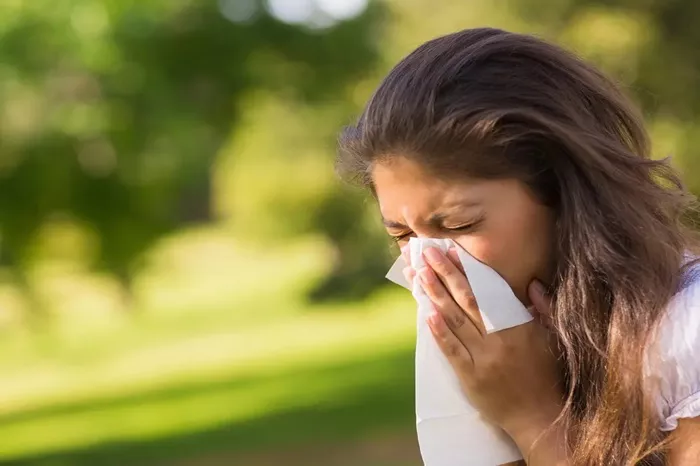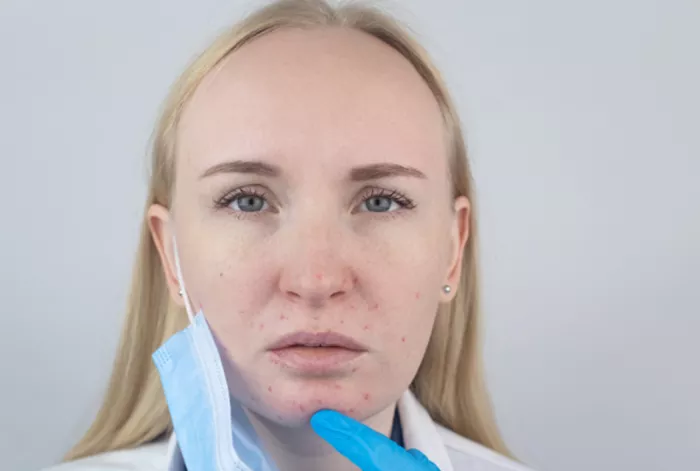Allergic reactions on the lips can be uncomfortable, unsightly, and even painful. These reactions can range from mild irritation to severe swelling and blistering, often caused by contact with allergens, irritants, or even systemic allergies. Understanding the causes, symptoms, and treatments for allergic reactions on the lips is essential for effectively managing and curing these issues. This article provides a comprehensive guide on how to identify, treat, and prevent allergic reactions on the lips.
Understanding Allergic Reactions on Lips
Before delving into treatment options, it’s crucial to understand what causes allergic reactions on the lips and how they manifest.
Causes of Allergic Reactions on Lips
Several factors can trigger an allergic reaction on the lips, including:
Contact Dermatitis: This occurs when the lips come into direct contact with an allergen or irritant. Common culprits include certain foods, cosmetics, dental products, and environmental substances.
Food Allergies: Some people have allergic reactions to specific foods that can cause swelling and irritation of the lips. Common food allergens include nuts, shellfish, eggs, and certain fruits.
Medication Reactions: Certain medications can cause allergic reactions that manifest as swelling or rash on the lips. Antibiotics, for example, are known to cause such reactions in some individuals.
Environmental Allergens: Pollen, dust, and other airborne allergens can sometimes lead to lip reactions, especially if they are inadvertently transferred to the lips through touching the face.
Systemic Allergies: Conditions like angioedema, which cause deeper swelling beneath the skin, can affect the lips. This is often related to a systemic allergic reaction rather than direct contact.
Symptoms of Allergic Reactions on Lips
The symptoms of an allergic reaction on the lips can vary in severity but commonly include:
Swelling (angioedema)
Redness and inflammation
Itching or burning sensation
Blisters or sores
Dryness and cracking
Pain or tenderness
Diagnosis and Identification of Allergens
Identifying the cause of an allergic reaction is a critical step in treating and preventing future occurrences.
1. Medical History and Examination
A thorough medical history and physical examination by a healthcare professional are the first steps in diagnosing an allergic reaction. The doctor will inquire about recent exposures to potential allergens, dietary changes, new medications, and the use of any new cosmetic or dental products.
2. Patch Testing
Patch testing involves applying small amounts of potential allergens to the skin, usually on the back, to observe for reactions. This test helps identify specific contact allergens that might be causing the reaction on the lips.
3. Blood Tests
Blood tests, such as the specific IgE test, can help identify systemic allergies. These tests measure the levels of IgE antibodies in response to specific allergens, indicating whether an individual is allergic to certain substances.
4. Elimination Diet
An elimination diet involves removing suspected food allergens from the diet and then gradually reintroducing them to identify which foods are causing the reaction. This method is particularly useful for diagnosing food allergies that may affect the lips.
Treating Allergic Reactions on Lips
Once an allergic reaction on the lips is identified, several treatment options can help alleviate symptoms and promote healing.
1. Immediate First Aid
For immediate relief, several first aid measures can be taken:
Cold Compress: Applying a cold compress to the lips can reduce swelling and numb the area, providing temporary relief from pain and itching.
Rinse with Water: Rinsing the lips with cool water can help remove any residual allergens or irritants.
2. Topical Treatments
Topical treatments are often effective for mild to moderate allergic reactions on the lips:
Hydrocortisone Cream: A mild steroid cream can reduce inflammation and itching. It should be used sparingly and only for short durations to avoid potential side effects.
Antihistamine Creams: Topical antihistamines can help alleviate itching and discomfort. Products containing diphenhydramine are commonly used.
Moisturizers and Emollients: Applying a hypoallergenic moisturizer can soothe dry, cracked lips and protect the skin barrier.
3. Oral Medications
For more severe reactions, oral medications may be necessary:
Antihistamines: Oral antihistamines such as cetirizine, loratadine, or diphenhydramine can reduce systemic allergic reactions and relieve symptoms like swelling and itching.
Corticosteroids: In cases of severe inflammation or angioedema, a doctor may prescribe oral corticosteroids to reduce swelling and prevent further complications.
4. Avoidance of Allergens
Identifying and avoiding the allergens that cause lip reactions is crucial for long-term management:
Cosmetic Products: Switch to hypoallergenic or natural lip products and cosmetics. Avoid products with fragrances, dyes, and preservatives known to cause allergies.
Foods: Once a food allergen is identified, it should be completely avoided. Reading food labels and being cautious when eating out is essential.
Medications: If a medication is the culprit, your doctor can prescribe an alternative.
5. Natural and Home Remedies
Several natural remedies can help soothe allergic reactions on the lips:
Aloe Vera: Aloe vera gel has anti-inflammatory properties and can soothe irritated skin. Apply a small amount to the lips several times a day.
Coconut Oil: Coconut oil is a natural moisturizer that can help heal dry, cracked lips and reduce inflammation.
Honey: Honey has natural antibacterial properties and can help prevent infection while soothing the skin. Apply a thin layer to the lips and leave it on for 15-20 minutes before rinsing off.
6. Professional Medical Treatment
In cases where home treatments are not effective, or if the reaction is severe, professional medical intervention may be required:
Prescription Medications: A doctor may prescribe stronger medications, such as higher-potency corticosteroids or immune-modulating drugs, for severe reactions.
Allergy Shots (Immunotherapy): For chronic or severe allergies, allergy shots can help desensitize the immune system to specific allergens over time.
Preventing Future Allergic Reactions on Lips
Prevention is the best strategy for managing allergic reactions on the lips. Here are some tips to help prevent future occurrences:
1. Patch Test New Products
Before using new lip products, cosmetics, or skincare items, perform a patch test. Apply a small amount of the product to a discrete area of the skin and wait 24-48 hours to check for any reaction.
2. Read Labels Carefully
Always read the ingredient labels on cosmetic and skincare products, as well as on food items. Look for potential allergens and avoid products containing known irritants.
3. Maintain Good Lip Hygiene
Keep your lips clean and moisturized. Avoid licking your lips frequently, as saliva can dry them out and exacerbate irritation. Use a gentle, hypoallergenic lip balm to maintain moisture.
4. Manage Stress
Stress can exacerbate allergic reactions and other skin conditions. Practice stress management techniques such as meditation, deep breathing exercises, and regular physical activity to keep stress levels in check.
5. Boost Immune Health
A strong immune system can help reduce the severity of allergic reactions. Maintain a balanced diet rich in vitamins and minerals, stay hydrated, and get adequate sleep to support overall immune health.
When to See a Doctor
While many allergic reactions on the lips can be managed with home treatments, there are situations where professional medical advice is necessary:
1. Severe Swelling or Difficulty Breathing
If you experience severe swelling of the lips, tongue, or throat, or if you have difficulty breathing, seek emergency medical attention immediately. These could be signs of anaphylaxis, a life-threatening allergic reaction.
2. Persistent or Worsening Symptoms
If your symptoms persist for more than a few days or worsen despite home treatment, consult a doctor. You may require prescription medications or further evaluation to determine the cause.
3. Recurrent Reactions
If you experience recurrent allergic reactions on the lips, it’s important to see an allergist or dermatologist for a thorough evaluation. Identifying the underlying cause is key to preventing future reactions.
Conclusion
Allergic reactions on the lips can be distressing, but with proper identification of the cause and appropriate treatment, most reactions can be effectively managed and cured. Understanding the triggers, employing first aid and topical treatments, using oral medications when necessary, and adopting preventive measures are all crucial steps in addressing this condition. By taking a proactive approach and seeking medical advice when needed, you can maintain healthy lips and reduce the risk of future allergic reactions.
[inline_related_posts title=”You Might Be Interested In” title_align=”left” style=”list” number=”6″ align=”none” ids=”9591,9587,9583″ by=”categories” orderby=”rand” order=”DESC” hide_thumb=”no” thumb_right=”no” views=”no” date=”yes” grid_columns=”2″ post_type=”” tax=””]

































